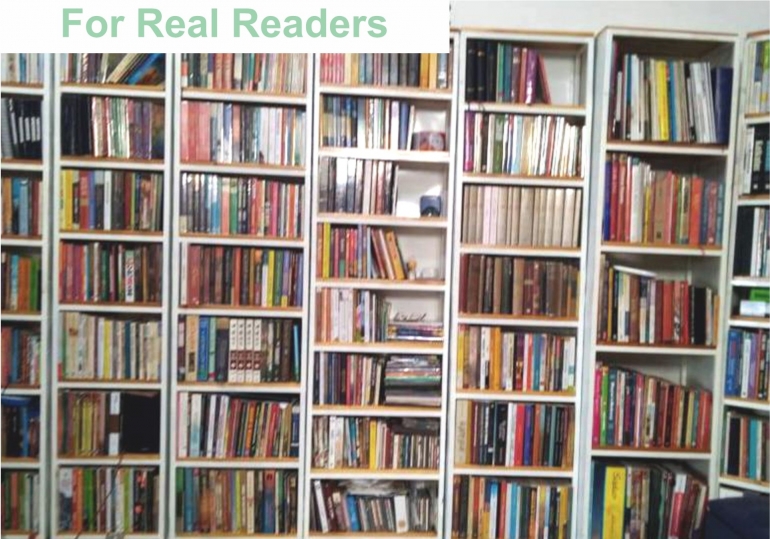There can be, therefore, no books that one absolutely must read. For our intellectual interests grow like a tree or flow like a river. So long as there is proper sap, the tree will grow any how, and so long as there is fresh current from the spring, the water will flow. When water strikes a granite cliff, it just goes around it; when it finds itself in a pleasant low valley, it stops and meanders there a while; when it finds itself in a deep mountain pond, it is content to stay there; when it finds itself traveling over rapids, it hurries forward. Thus, without any effort or determined aim, it is sure of reaching the sea some day.
There are no books in this world that everybody must read, but only books that a person must read at a certain time in a given place under given circumstances and at a given period of his life. I rather think that reading, like matrimony, is determined by fate or yinyuan.
Even if there is a certain book that every one must read, like the Bible, there is a time for it. When one's thoughts and experience have not reached a certain point for reading a masterpiece, the masterpiece will leave only a bad flavor on his palate. Confucius said, "When one is fifty, one may read Yijing (the Book of Changes)," (this I do not agree -- Johan Japardi) which means that one should not read it at forty-five. The extremely mild flavor of Confucius' own sayings in Lunyu (the Analects) and his mature wisdom cannot be appreciated until one becomes mature himself.
Furthermore, the same reader reading the same book at different periods, gets a different flavor out of it. For instance, we enjoy a book more after we have had a personal talk with the author himself, or even after having seen a picture of his face, and one gets again a different flavor sometimes after one has broken off friendship with the author. A person gets a kind of flavor from reading the Book of Changes at forty, and gets another kind of flavor reading it at fifty, after he has seen more changes in life.
Therefore, all good books can be read with profit and renewed pleasure a second time. I was made to read Westward Ho! and Henry Esmond in my college days, but while I was capable of appreciating Westward, Ho! in my 'teens, the real flavor of Henry Esmond escaped me entirely until I reflected about it later on, and suspected there was vastly more charm in that book than I had then been capable of appreciating.
Reading, therefore, is an act consisting of two sides, the author and the reader. The net gain comes as much from the reader's contribution through his own insight and experience as from the author's own. In speaking about the Confucian Analects, the Song Confucianist Cheng Yichuan said, "There are readers and readers. Some read the Analects and feel that nothing has happened, some are pleased with one or two lines in it, and some begin to wave their hands and dance on their legs unconsciously."
I regard the discovery of one's favorite author as the most critical event in one's intellectual development. There is such a thing as the affinity of spirits, and among the authors of ancient and modern times, one must try to find an author whose spirit is akin with his own. Only in this way
can one get any real good out of reading. One has to be independent and search out his masters. Who is one's favorite author, no one can tell, probably not even the man himself. It is like love at first sight. The reader cannot be told to love this one or that one, but when he has found the author he loves, he knows it himself by a kind of instinct.
We have such famous cases of discoveries of authors. Scholars seem to have lived in different ages, separated by centuries, and yet their modes of thinking and feeling were so akin that their coming together across the pages of a book was like a person finding his own image. In Chinese phraseology, we speak of these kindred spirits as reincarnations of the same soul, as Su Dongpo was said to be a reincarnation of Zhuangzi or Tao Yuanming and Yuan Zhonglang was said to be the reincarnation of Su Dongpo.
Su Dongpo said that when he first read Zhuangzi, he felt as if all the time since his childhood he had been thinking the same things and taking the same views himself. When Yuan Zhonglang discovered one night Xu Wenchang, a contemporary unknown to him, in a small book of poems, he jumped out of bed and shouted to his friend, and his friend began to read it and shout in turn, and then they both read and shouted again until their servant was completely puzzled. George Eliot described her first reading of Rousseau as an electric shock. Nietzsche felt the same thing about Schopenhauer, but Schopenhauer was a peevish master and Nietzsche was a violent-tempered pupil, and it was natural that the pupil later rebelled against the teacher.
It is only this kind of reading, this discovery of one's favorite author, that will do one any good at all. Like a man falling in love with his sweetheart at first sight, everything is right. She is of the right height, has the right face, the right color of hair, the right quality of voice and the right way of speaking and smiling. This author is not something that a young man need be told about by his teacher. The author is just right for him; his style, his taste, his point of view, his mode of thinking, are all right. And then the reader proceeds to devour every word and every line that the author writes, and because there is a spiritual affinity, he absorbs and readily digests everything. The author has cast a spell over him, and he is glad to be under the spell, and in time his own voice and manner and way of smiling and way of talking become like the author's own. Thus he truly steeps himself in his literary lover and derives from these books sustenance for his soul. After a few years, the spell is over and he grows a little tired of this lover and seeks for new literary lovers, and after he has had three or four lovers and completely eaten them up, he emerges as an author himself.
There are many readers who never fall in love, like many young men and women who flirt around and are incapable of forming a deep attachment to a particular person. They can read any and all authors, and they never amount to anything.







